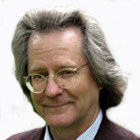AC Grayling is an important contemporary philosopher. His book "Towards the Light" discusses history of 'Liberty'.
What liberty means to me: no one has the right to dictate to others how they should live, except if it threatens harm to others
-

- guardian.co.uk,
- Saturday July 5, 2008
- Article history
It seems odd to be asked to explain why liberty matters, after 400 years of often bitter effort to wrest it from the hands of the privileged and powerful few; but, alas, here we are. The powers that be have fallen prey to the false belief that if a technology is available – say, that allows it to spy on the populace – it should be used. A nannying, interfering, paternalistic state cannot trust people to make their own decisions, take their own risks, and accept responsibility for the consequences.
Liberty – individual liberty, the autonomy of the human – matters because no one has the right to dictate to others how they should live, what they should choose, whom they should love, or what goals they should pursue, except if any of these things threaten harm to others, where harm includes limiting others' freedoms to choose.
Civil liberties protecting individual autonomy, privacy, free speech and enquiry, and due legal process that protects the possession of them all, guard individuals against the collective and the overweening use of power.
Entrenching civil liberties matters, because it is always in the interests of authorities to make it easier for themselves to exercise their authority and to impose their will, so there is always a tendency towards limitation of freedom in the name of efficiency, security, the majority, or some greater good such as public health.
As governments try social engineering schemes – at the outset always with the best intentions – so the mission creep of directing, controlling and improving by force, occurs: and with it the loss of the physical and psychological space around each individual that makes life worth living.
John Stuart Mill observed that one of the important things about liberty is that is allows many and various experiments in living to occur. That is true; but it is even more pointful to observe that humans are various. Only in a pluralistic dispensation can all that variety express itself, and pluralism needs liberty because it is impossible without it.
No one should be the property of another, or of a system. We should each be volunteers in society, and should choose our place in it. Of course this means signing up to a common purpose and agreeing with others how we should organise ourselves; that is what democracy is about, and if we are responsible we accept that this will sometimes inconvenience us. But the inconvenience has to be well motivated indeed, and ultimately justified by the harm principle on good grounds. There are no other grounds – and certainly not grounds of efficiency and security – on which we can be obliged to yield our liberties to a government that thinks only in large, round numbers.
Note, by the way, that this is not a "libertarian" view, which is that we should have license to trample over others in the pursuit of self-interest. The harm principle constrains that alternative. Nor is this a view that says we should not care about those among us who are less able to care for themselves: a humane community is one that is tender to the young, old, ill and hurt, and that seeks to equalise opportunities and make life equitable thereafter. Courtesy, the true moral foundation, takes care of much of the rest.
But it is part of moral courtesy that we should respect the freedom of others, as we wish our own to be respected. And then we can all find our way to our chosen destinations as autonomous individuals in chosen relationships, with responsibility and possibility as our own possession.
No comments:
Post a Comment